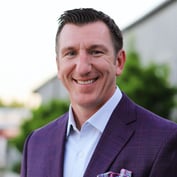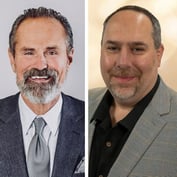Richard “Dick” Wagner, who passed away in late March, was a founding partner of the Denver financial planning firm Sharkey, Howes, Wagner & Javer; president and chairman of the Rocky Mountain Chapter of the International Association of Financial Planning; national committee member and president of the Institute of Certified Financial Planners; a regular contributor to Financial Advisor magazine for over 10 years; contributor for “Money and Soul” column in the ICFP journal; and the author of arguably the most influential article in financial planning history, “To Think Like a CFP,” which appeared in the Journal of Financial Planning in 1989.
Wagner also gave hundreds of presentations at financial planning gatherings and wrote two books. Together with financial planner George Kinder (who later went on to launch the Kinder Institute of Life Planning), he founded what became the Nazrudin Project: a loosely organized group of financial planners dedicated to using financial planning to improve the lives of their clients beyond their balance sheets. In recognition of these and many other contributions to the profession, Wagner was presented with the P. Kemp Fain, Jr. award by the Financial Planning Association in 2003.
While most of us would consider the above CV to be more than a successful career, Wagner’s real contribution to the profession of financial planning was made behind the scenes: through his support, guidance and encouragement of literally hundreds of financial planners, many of whom went on to become leaders who have changed the direction of financial planning. What follows are the words of nine of those planners, talking about how Dick changed their lives and the profession itself.
David Maurice, CFP, is vice president of Carrier, Maurice & Webb Wealth Advisors in Johnson City, Tennessee:
“I don’t think I would know what financial planning is had it not been for Dick.
“I was so fortunate to be one of his mentees and to be around when somebody like him was doing something big in the world and in the profession. Everything I learned about financial planning is from the heart out, which was taught by Dick and George Kinder. Both of them affected me that way. And we have built our practice on that: looking at both the interior and the exterior of the clients. [...] I loved him dearly and will miss him very much.”
Judy Lau, CFP, is founder and president of Lau Associates in Greenville, Delaware. She was chairman of the board of the ICFP and a trustee of the National Foundation for Financial Planning:
“When I read Dick’s article ‘Think Like a CFP,’ it hit me like a jolt out of the blue. The things he wrote and the ideals he discussed changed the financial planning profession. He gave our core values a platform to be heard and started a conversation about those core values. Dick moved the puck in such a way that it allowed the ICFP to take off and run as a professional organization.”
Dave Yeske, Ph.D., CFP, is a partner at Yeske Buie Financial Advisors in San Francisco:
“What a loss to the profession. Dick was a personal friend and deeply affected my approach to financial planning. When I entered the profession in 1990, most of my thinking was influenced by Dick’s article ‘Think Like a CFP.’ But he also connected with people one on one. He was a mentor to many financial planners.
“I think most people also think of him as a thinker, a leader and a writer. But he also had a very practical side [...]. He had the amazing ability to cut though things that seemed impossibly complex to the simple core. For example, in 2003, when I was president of the FPA, the board was trying to smooth out some staff issues. I had a conversation with Dick about it, and he cut right to the core: ‘The board has only one employee — the executive director,’ he said. It greatly simplified what we did on the board. Dick was not just a theorist and great thinker, but also a mentor, who gave at all levels, all the time. And he was never done until he was done.”
Susan Bradly, CFP, is founder of the Sudden Money Institute:
“Dick’s passing is sad for all of us, of course, but I hope it causes more people to look at his work. He was in a continuous state of inquiry and development, and he was always ahead of the industry — and the profession. He was a natural leader, but very inclusive. He listened and looked for new members of all the organizations he was affiliated with.








 May 01, 2017 at 08:00 PM
May 01, 2017 at 08:00 PM










